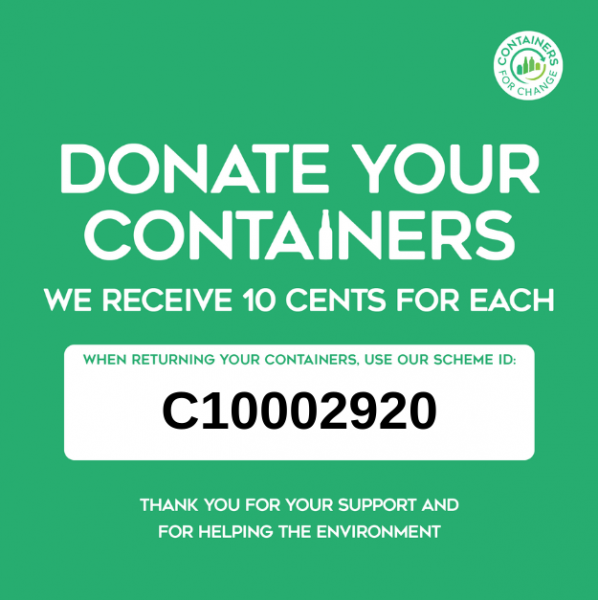
18 March 2022
In just the past 50 years, humans have consumed more resources than ever before. Recycling has been called the Earth’s ‘seventh resource’ (after water, air, oil, natural gas, coal and minerals) because it saves more than 700 million tonnes of CO2 emissions annually, with an estimated increase to 1 billion tonnes saved each year expected by 2030. Today is Global Recycling Day, so we’re showcasing a few simple ways you can help conserve the planet’s resources.
Initiated by the Global Recycling Foundation in 2018 to publicise just how important recycling is for conserving primary resources, the day aims to encourage global leaders to formulate international solutions and asks individuals everywhere to recycle what they can. Combined, recycled materials already fulfil some 40% of our global raw material requirement, all just from people considering what they can reuse, upcycle or melt down and recycle.
The plastic problem
For years now, Wildlife Queensland has been working closely as part of the Boomerang Alliance to pressure governments to:
- mandate Australia’s National Packaging Targets
- phase-out problematic and unnecessary plastics
- address packaging labelling and greenwashing
- implement bans on the export of waste plastics, and
- commit to a target for zero plastic packaging in landfill.
We’re making headway when it comes to plastics, with bans on single-use plastic bags, straws, cutlery and other non-recyclable items and a renewed push to ban plastic items for which more sustainable alternatives are available (like bread bag tags and cotton-tip sticks). Already this year, the UN has agreed to a global plastic pollution treaty, and last year a new standardised Australasian Recycling Label was launched to make it easier to determine which components of food and product labelling were recyclable, so remember to ‘Check it before you chuck it!’
Many supermarkets and retail stores now have recycling stations for soft plastics, single-use plastic bags, biscuits wraps and frozen food bags, which are recycled by REDcycle and made into construction materials, bollards, benches and other more-durable items. To find out where drop-off points are close to you, click here. About 130,000 tonnes of plastic end up in the world’s oceans each year, so anything you can do to reduce that burden has to help!
E-waste
But plastics aren’t the only recyclables ruining our planet. Recycling paper and cardboard, wood, glass, aluminium, clothing and materials, pens, batteries, printer toner, and ‘e-waste’ (electronic waste) such as mobile phones and computer parts, and extracting the valuable minerals they contain, is also essential.
Australia recycles around 87% of its paper waste, and each tonne of paper recycled saves 13 trees.
Electronic waste is becoming a huge issue, with each Australian estimated to create 23 kg of it every year. Most of it cannot be recycled through home recycling, so Officeworks operates free recycling for these products in store.
Another recently unmasked issue is medical waste, with discarded facemasks being a focus for Clean Up Australia Day and Covid-19 increasing the mountain of medical waste produced around the world. Now, researchers at 180 Waste Group are looking at ways to process potentially hazardous medical waste, such as using Frictional Heat Treatment to decontaminate medical waste and make it suitable for recycling.
Treading lightly
Did you know that it can take up to 1000 years for some shoes to decompose? That’s why TreadingLightly is running a shoe-recycling schools initiative from 21–27 March asking childcare centres, primary schools and secondary schools around Australia to ‘step up for the planet’ and collect used shoes for recycling. Find a participating school or collection point near you – and step on it!
Containing waste
 Australia’s Container Refund Scheme also incentivises recycling bottles and containers, which greatly reduces the amount of energy required to create plastics. Recycling a single plastic bottle saves enough energy to power a computer for 25 minutes!
Australia’s Container Refund Scheme also incentivises recycling bottles and containers, which greatly reduces the amount of energy required to create plastics. Recycling a single plastic bottle saves enough energy to power a computer for 25 minutes!
Recycling your drink containers under the Container Refund Scheme can also directly help native wildlife. Here’s how:
- Simply take your collected eligible empty drink containers to a Containers for Change collection point.
- Donate your refund to Wildlife Queensland projects by quoting our scheme ID number: C10002920 (or save the image at right with our ID number to your phone for quick and easy reference when you’re at the collection point.)
- Each container earns 10 cents, which adds up quickly, and it’s one more recyclable product that won’t find its way into our oceans.
Recycled and repurposed goods aren’t just good for the environment, they’re good for the economy too. Globally, some 1.6 million people are employed in recycling materials, with approximately $20 million channelled into improving efficiency and creating employment opportunities, often in underdeveloped nations.
So, this Global Recycling Day, consider how you can make a change towards reduced usage and generating a circular economy that enables us to tread more lightly, live more sustainably and recycle the finite resources of our home planet.
